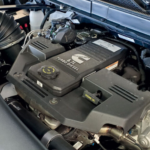As diesel engines become more popular with consumers, the need to pass emissions tests is more important than ever. A deleted diesel is a vehicle that has had its emissions control systems removed in order to enhance its performance. While this may be an attractive option for some, it is important to know the risks and understand how to pass emissions with a deleted diesel.
What is an Emission Test?
An emissions test is a type of inspection that checks a vehicle’s exhaust system for pollutants that are released into the atmosphere. This test is conducted to ensure that the vehicle meets certain environmental regulations.
Emissions tests are conducted by state and local governments, as well as by private companies. The goal of an emissions test is to reduce the amount of harmful pollutants released into the environment from vehicle engines.
A diesel engine that has been “deleted” is one that has had its emissions control system removed or disabled. This can be done to increase the performance of the engine, but it also means that the vehicle will not pass an emissions test.
In order to pass an emissions test with a deleted diesel, the vehicle must be modified to comply with the regulations. This can be done by installing a diesel particulate filter, which is designed to reduce the amount of pollutants released from the engine.
Other modifications may also be needed, such as the installation of an emission control system. The vehicle must then be tested again to make sure that the modifications have been successful in reducing emissions to acceptable levels.
How Does a Deleted Diesel Vehicle Pass an Emission Test?
The ability to pass emissions tests with a deleted diesel is a popular option for diesel vehicle owners looking to improve their vehicle’s performance while still maintaining compliance with any local emissions regulations.
A diesel vehicle can be deleted by removing the exhaust gas recirculation (EGR) valve, the diesel oxidation catalyst, and the diesel particulate filter. This process can significantly reduce exhaust emissions, including nitrogen oxide (NOx) and soot.
However, in order to pass an emissions test, the vehicle must still meet the required emissions standards. This means that it must still be able to meet the specific requirements of the test, such as the emissions levels for hydrocarbons, carbon monoxide, and nitric oxide.
As such, deleted diesel vehicles must be properly tuned in order to ensure that they are able to pass an emissions test. This can be done by using a diesel tuning device to adjust the engine’s parameters, such as fuel delivery, timing, and air-fuel ratio.
Additionally, a diesel particulate filter regeneration system can also be used to ensure that the vehicle is able to meet the required emissions standards. By properly tuning the vehicle and using the right systems, drivers can ensure that their deleted diesel vehicle is able to pass an emissions test.
Is It Legal to Delete a Diesel Vehicle?
When it comes to diesel vehicles, there has been much controversy surrounding the emissions requirements. For some, the idea of deleting a diesel vehicle and still passing emissions tests may seem like a dream come true.
It is important to note, however, that while this is possible, it is not legal in most areas. In order to pass emissions, a diesel vehicle must still meet certain standards, and deleting the vehicle’s emissions system is often considered tampering with the vehicle, making it illegal.
Additionally, it is important to be aware that even if the vehicle passes the emissions test, any modifications made to the vehicle’s emissions system may void the warranty or even cause the vehicle to be classified as a “gross polluter”.
For these reasons, it is important to consider all of the potential consequences before taking the risk of deleting a diesel vehicle.
Advantages of Deleting Your Diesel Vehicle
Deleting a diesel vehicle has many advantages, especially when it comes to emissions. When you delete a diesel vehicle, you are essentially removing the factory installed emissions control systems.
This means that your vehicle will no longer be regulated by the Environmental Protection Agency (EPA) and no longer have to pass emissions testing. By deleting your diesel vehicle, you can benefit from increased performance, improved fuel economy, and fewer emissions.
The increased performance comes from the fact that you are removing the restrictive factory installed emissions control systems, and the improved fuel economy results from the decreased back-pressure created by the deleted emissions control systems. Additionally, your vehicle will produce fewer emissions since the deleted emissions control systems are no longer in place.
Find a Certified Professional for Deletion
When it comes to passing emissions with a deleted diesel engine, finding the right certified professional is essential. After all, without the right certification, you may find yourself in a world of trouble.
The process of deleting a diesel engine involves the removal of emissions control systems, which can drastically reduce the amount of emissions your vehicle produces. Therefore, it is important to find a certified professional who is knowledgeable in the process of deleting diesel engines.
Certified professionals can provide you with the necessary guidance and advice to ensure your engine is properly deleted and that you are in compliance with emissions regulations. Additionally, they can provide you with the necessary paperwork needed to pass emissions.
So, finding a certified professional to delete your diesel engine is an important step in the process to ensure a successful deletion and a successful emissions test.
Conclusion
Passing emissions with a deleted diesel is not an impossible task. With the right knowledge and tools, you can make sure that your vehicle is safe, emissions-compliant, and legal to drive. It is important to understand how diesel emissions work, the different kinds of deletes available, and the different kinds of testing and inspection requirements. With the right preparation, you should be able to pass your diesel emissions test and keep your vehicle on the road.







